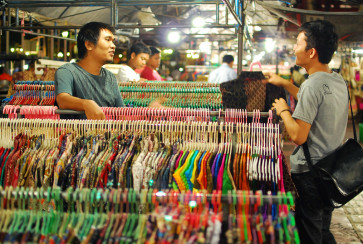Popular Reads
Top Results
Can't find what you're looking for?
View all search resultsPopular Reads
Top Results
Can't find what you're looking for?
View all search resultsIndonesia falls back into lower-middle-income ranks
Indonesia has fallen back into the World Bank’s lower-middle-income country classification after just a short stint in the upper-middle-income group in what the government has called an inevitable result of the COVID-19 crisis.
Change text size
Gift Premium Articles
to Anyone
I
ndonesia has fallen back into the World Bank’s lower-middle income country classification after just a short stint in the upper-middle-income group.
The government expressed little surprise about the reclassification, given that the COVID-19 pandemic caused the country's first recession in more than two decades.
The World Bank reported on July 1 that Indonesia’s gross national income (GNI) per capita was estimated at US$3,870, 5.52 percent below the new threshold for upper-middle-income countries. The GNI was down 4.44 percent from a year earlier.
“The pandemic led to negative economic growth across almost all countries, including Indonesia, in 2020,” the Finance Ministry’s Fiscal Policy Agency head, Febrio Kacaribu, was quoted in a press release as saying on Thursday. “The decline in Indonesia’s per-capita income is an inevitable consequence.”
The World Bank’s announcement marks an end to Indonesia’s one-year period as an upper-middle-income country, raising questions about the government’s plan to escape from the so-called middle-income trap.
Read also: Indonesia was briefly an upper middle-income country. Then came the pandemic.


















